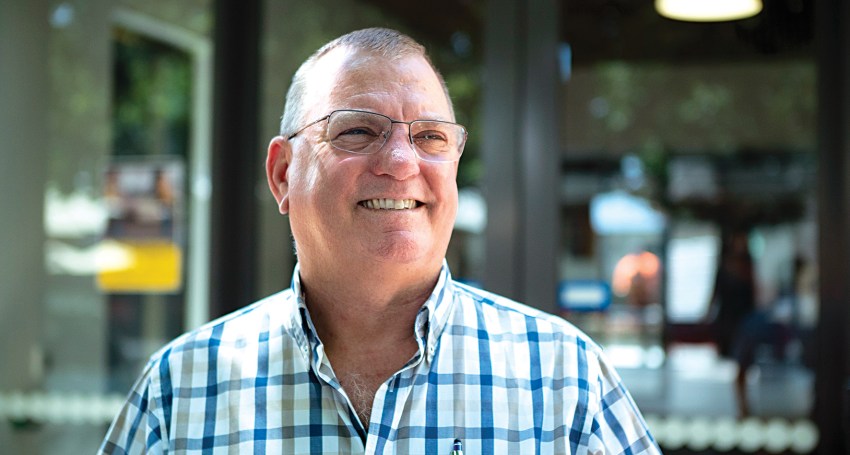Crisis point as housing shortage worsens
News
Adelaide's Hutt St Centre fears it will reach capacity and might be forced to turn people away within the next three years if more social housing does not become available.

Hutt St Centre chief executive, Chris Burns, said more people than ever were visiting its Wellbeing Centre for a hot shower, nutritious meal or to access more than 20 supporting services available.
“In the 2024-25 financial year the number of Wellbeing Centre visits grew to 42,975 from 40,504 in 2023-24. On average, 826 people access our services every week,” Mr Burns (pictured) said.
“Almost 1000 new clients accessed our services in 2024-25, and 41 per cent of them experienced homelessness for the first time.
Advertisement
“We’re seeing more people come in who are living on the streets, more people in our parks and more people sheltering behind buildings or under bridges as they seek safety at night. They rely on us for support, companionship and safety during the day, but demand is outstripping the available resources.”
Mr Burns said Hutt St Centre expected the numbers to grow. Despite never having turned away anyone seeking a meal, a hot shower or life-saving support, he feared that if the data trends continued on the same trajectory, they would have no choice but to turn people away by 2028.
“Our greatest fear is having to turn someone in desperate need away, it goes against our values and ethos,” he said.
Funded primarily from donations from its supporters and charity partners, including Catholic Charities, the Wellbeing Centre is the first port of call for many people experiencing homelessness or at-risk of homelessness.
With rising cost-of-living pressures, Mr Burns said it was becoming increasingly difficult to provide services while trying to stretch every dollar even further.
He said while the South Australian Government was working towards providing more affordable housing, there needed to be a much greater priority and resources given to social housing. Without it, the housing crisis would not just continue but would worsen.
“We exist to advocate for those who do not have a voice. Not only are they often ignored, but their trauma is also compounded because they literally can’t afford the very limited amount of housing available,” Mr Burns said.
“We are struggling to help them to find their exit pathway – from the streets to homefulness – where they will feel a sense of safety and security, a sense of being embraced by and contributing to a community and a sense of confidence that there is a positive trajectory ahead of them.
“If we could make more vacant private residences or social housing available, we would be able to find a roof for many of these people living outside of the margins of society relatively quickly.”
Advertisement
He said the Hutt St Centre was working with the Government on solutions to the increasing need for additional housing and associated services, as well as with the City of Adelaide to ease pressure on those sleeping in tents in the parklands.
But with the Government undertaking another review of homeless services, Mr Burns said it needed to extend its reach and recognise the sector was facing a crisis that it might be unable to manage in the near future.
He said the findings of the review were not due to be handed down until June 2026, and by then the number of people sleeping rough will have worsened.
“With the cost of living continuing to create ripple effects through the community – including impacting on sponsorships, partnerships and donations – every social service partner within the sector is facing uncertainty on how they will manage the increasing number of people walking through our doors every day.”











